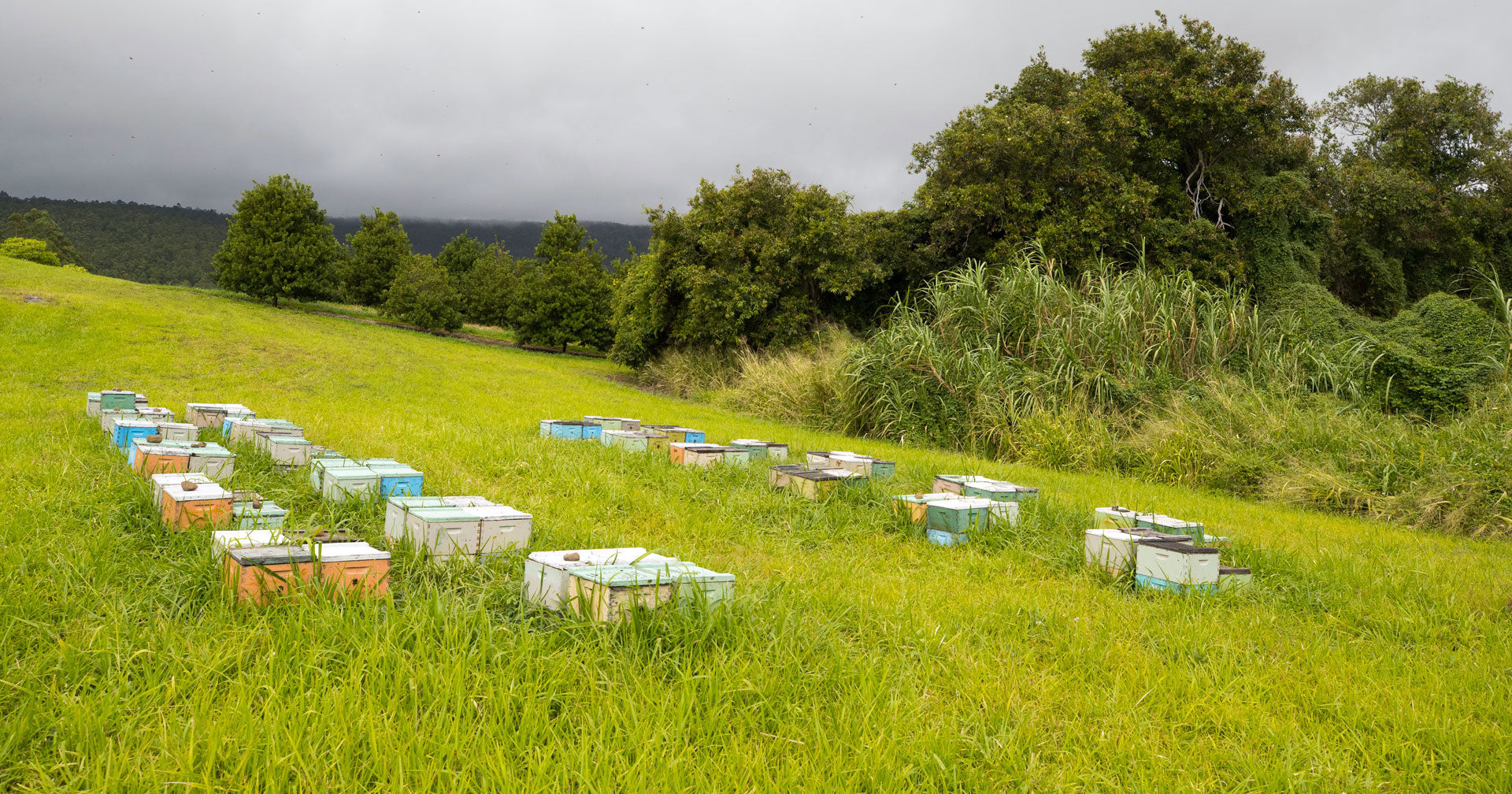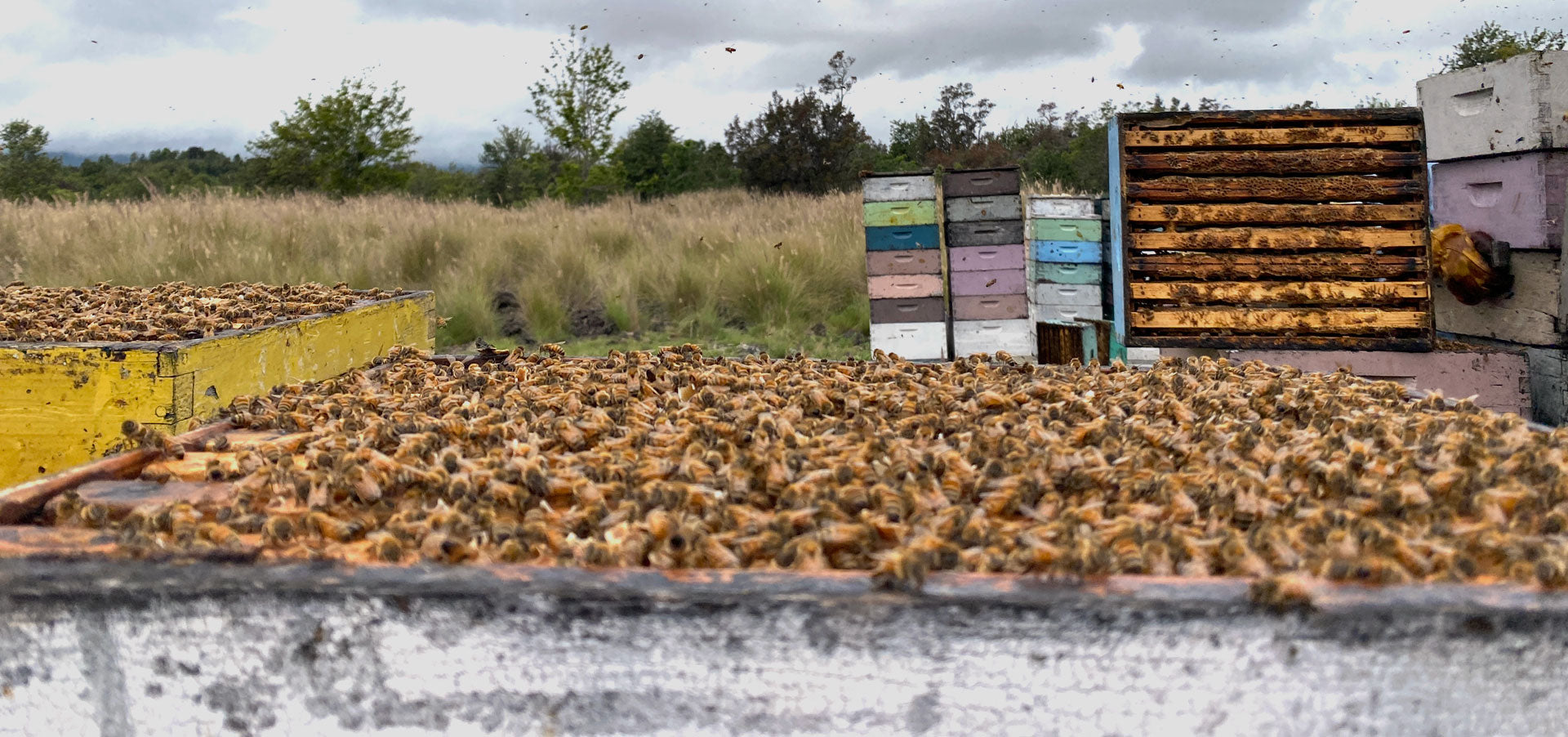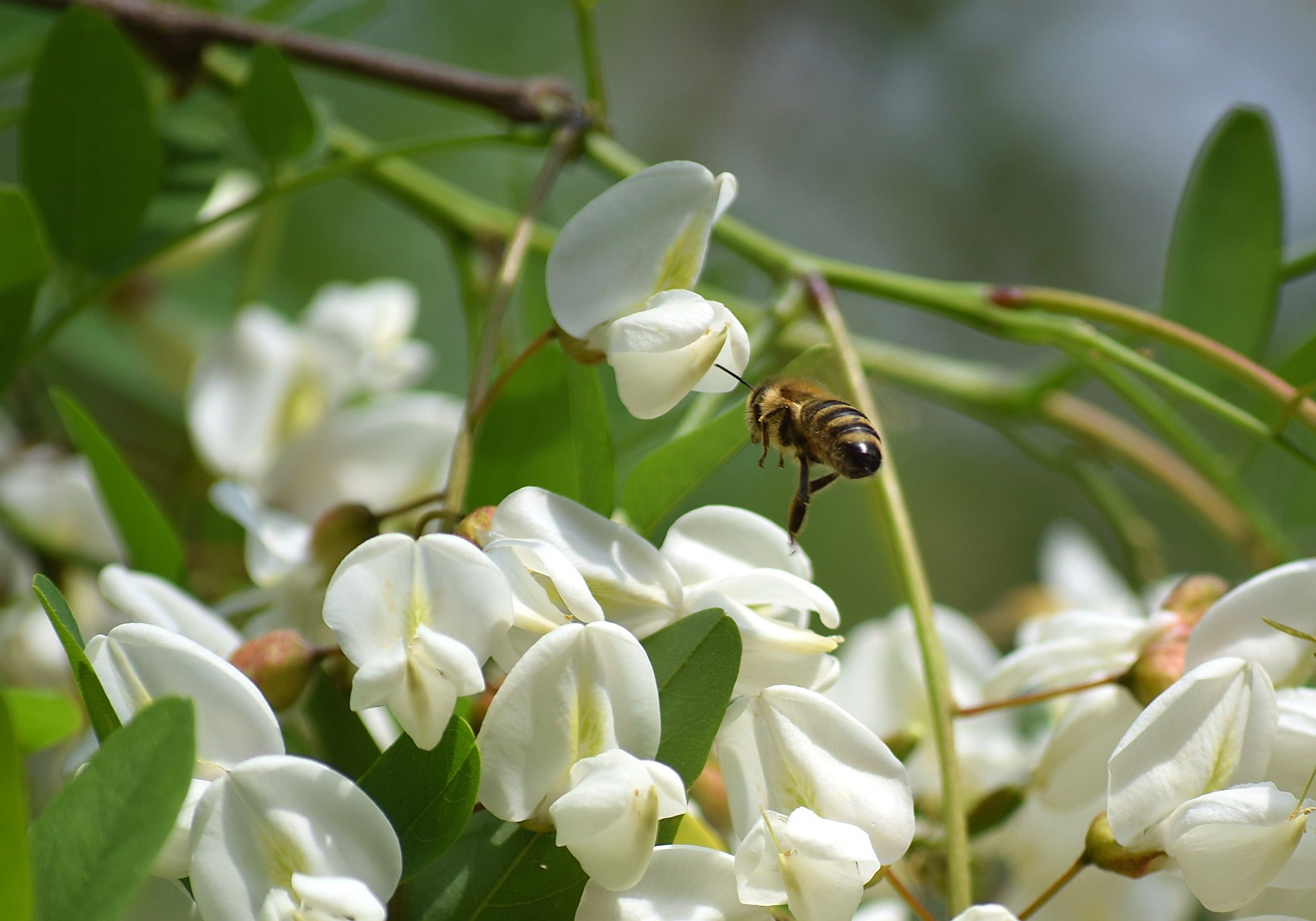
Our hives hidden in pristine coastline
Did you know that bees can fly up to four miles away from their hive to forage for nectar? In fact, they'll fly as far as they have to in order to feed their hive. So you might wonder how organic beekeepers ensure that their bees only forage on organically grown plants. That's an important question and the answer might help you when choosing the best honey for your table.
The Organic Honey Conundrum
For many beekeepers, particularly in urban areas, they can't ensure that their honey is organic . But that doesn't mean there aren't any pesticide-free areas that are vast enough to provide enough buffer around the hives. There just aren't very many in the continental United States.
Here on the remote island of Hawaii, we are fortunate to have vast spaces of pristine and unique ecosystems with flowers blooming year-round. And some of the plant species here aren't found anywhere else, such as the Ohi'a Lehua tree.
Many agro-chemicals are extremely toxic to bees and therefore, for any beekeeper, the location of the apiary is a critical factor in maintaining their livelihood. However those who produce organic honey must choose a location that meets even stricter criteria.
An organic certification is also reflective of how the hives are tended to. All these factors affect the quality and taste of the honey.
To learn more about honey certification and how to choose the best honey, visit our post about honey labeling:
Big Island Bees is an artisanal producer of three unique Hawaiian honey varietals. Our honey is raw and unfiltered and we tend to our own hives with deliberate care for the health of the bees and environment – without the use of chemical miticides or artifical feeds. We have proudly been the first place recipient of the Good Foods Awards in 2021 and 2022 in the honey category.



